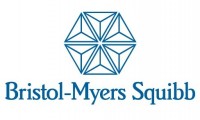-
Multiple sclerosis drug could reduce painful side effects of common cancer treatment
- Source: medicalxpress.
- 454
- April 28, 2018
-
Hanmi Pharma gives up on development of lung cancer drug Olita
- Source: koreaher
- 2,356
- April 20, 2018
-
XBiotech In-licenses Anti-NY-ESO-1 Antibody Targeting Advanced Cancer
- Source: Forextv
- 877
- April 18, 2018
-
Updated Overall Survival Data for LYNPARZA® (olaparib) in gBRCA-Mutated HER2-Negative Metastatic Breast Cancer Presented at AACR
- Source: businesswire
- 863
- April 17, 2018
-
Portable Cancer-Detecting Device Being Developed By Korean Startup
- Source: International Business Times
- 1,950
- April 13, 2018
-
Illumina and Loxo Oncology to Partner on Developing Next-Generation Sequencing-Based Pan-Cancer Companion Diagnostics
- Source: Illumina
- 497
- April 12, 2018
-
FDA Approves Rucaparib for Maintenance Treatment of Recurrent Ovarian, Fallopian Tube, or Primary Peritoneal Cancer
- Source: asco.org
- 532
- April 11, 2018
-
Sanofi’s PD-1 inhibitor starts EU review for skin cancer
- Source: Pmlive
- 549
- April 8, 2018
-
Singapore’s Aslan stalks $86M IPO to fund cancer pipeline
Aslan wants to list on the U.S. exchange under the ASLN symbol.
- Source: fiercebiotech
- 541
- April 5, 2018
your submission has already been received.
OK
Subscribe
Please enter a valid Email address!
Submit
The most relevant industry news & insight will be sent to you every two weeks.













